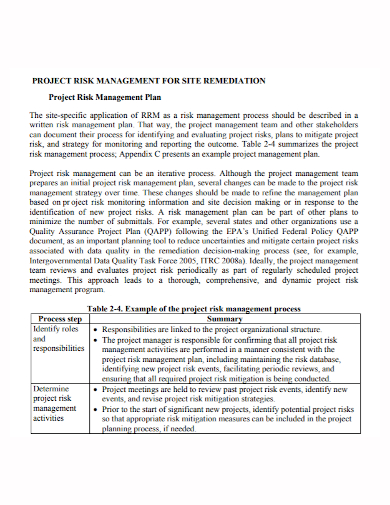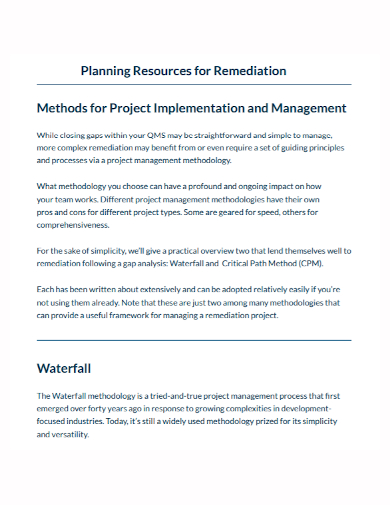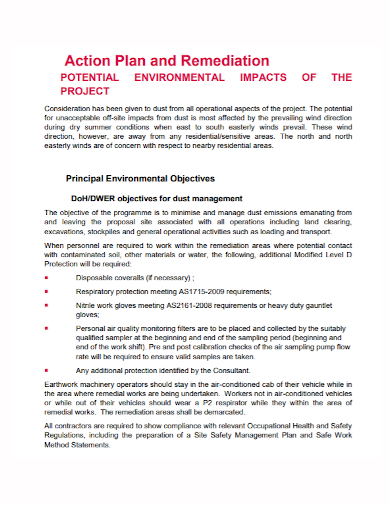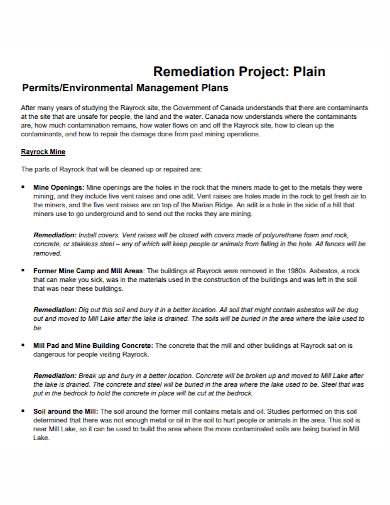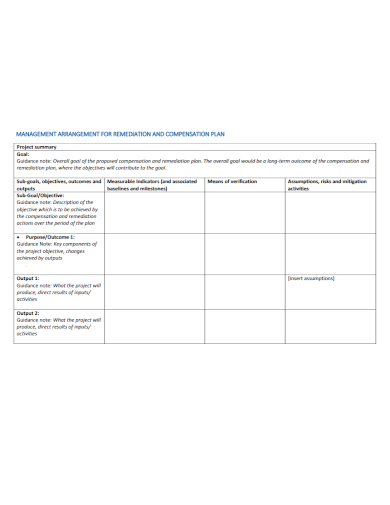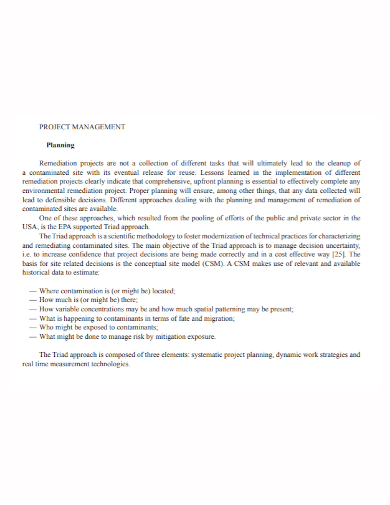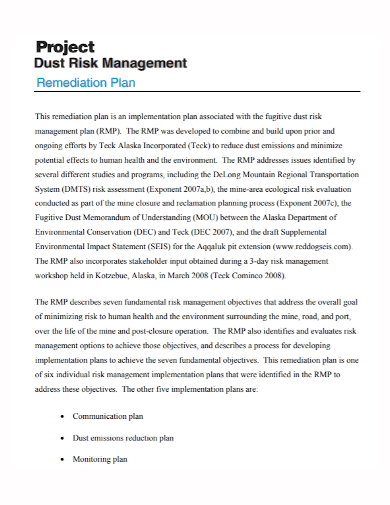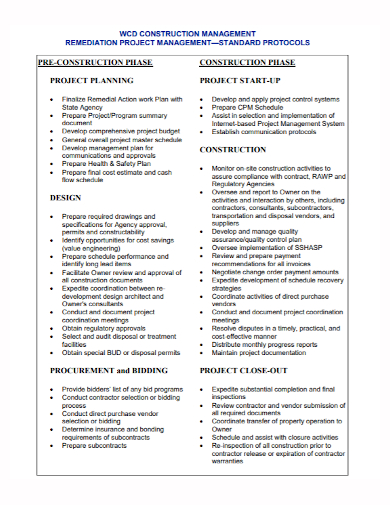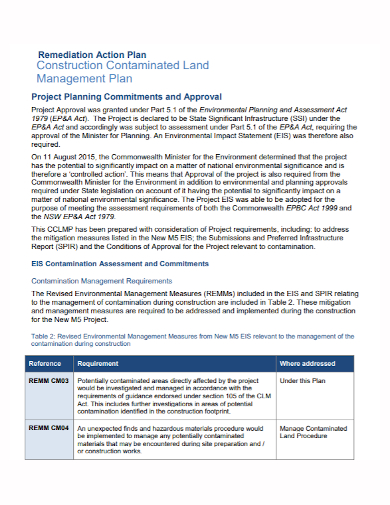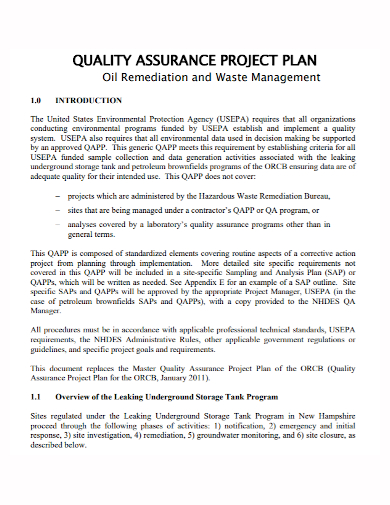Businesses and organizations all over the world must create a detailed action plan for the strategies they intend to employ both inside and outside their walls. In business, things don’t always go as planned, but a layout can help the entire organization stay on track. Having a detailed plan in place is the best way to avoid wasting time and money on projects that don’t work out. A remediation plan is a document that aids in the successful completion of a project by bringing the project’s vision to life.
As your company grows in size and scope, a well-thought-out remediation plan can help you be prepared for anything that may arise. The ability to track progress and ensure that everyone involved in the implementation of your strategies is on the same page is one of the most important advantages of using a dashboard. You should be aware that your company’s overall operations may be jeopardized, and you should understand the importance of quickly implementing strategies and policies. If you try to implement certain strategies and they fail or do not work as planned, it could be disastrous for your company. As a result, it’s critical to make the most of the current document you’re working on. We’ve included some sample IT remediation plans for your convenience so you can get started on your own business right away. Once you’ve become familiar with the layout and functionality of your organization, feel free to use these examples as a guide or even a template when creating your own remediation plan.
10+ Project Management Remediation Plan Samples
1. Project Management Remediation Plan Template
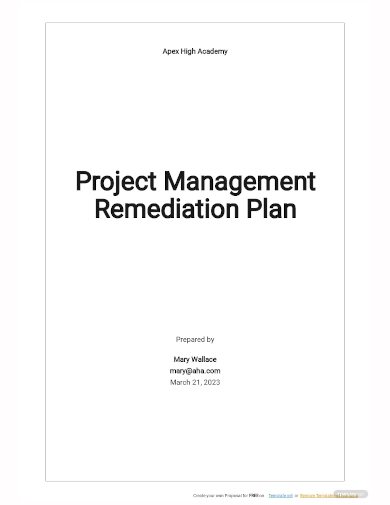
2. Project Risk Management Remediation Plan
3. Project Management Remediation Implementation Plan
4. Project Management Remediation Action Plan
5. Environment Project Management Remediation Plan
6. Project Management Compensation Remediation Plan
7. Sample Project Management Remediation Plan
8. Standard Project Management Remediation Plan
9. Construction Project Management Remediation Plan
10. Project Assessment Management Remediation Plan
11. Project Waste Management Remediation Plan
What Is a Project Management Remediation Plan
Remediation plans are documents that outline the specifics, strategies, and timelines for project planning and implementation in the business world. Project management plans are another name for them. To achieve a wide range of objectives, carefully considered and strategically planned actions are required. Writing an action plan is the most important first step in bringing a business idea to fruition and success. It’s the single most important thing you can do to turn your business concept into a reality and a success. A checklist is provided that outlines the specific steps and actions that your company must take in order to properly implement both internal and external strategies. This checklist will assist you in ensuring that your company’s internal and external strategies are properly implemented both inside and outside the organization. Despite the fact that most action plans are several pages long, the length of an action plan is largely determined by the scope and nature of the project you want to work on or the project you are currently working on. You must present your action plan with enough specificity and parameters to ensure that the employees assigned to your project and the rest of the management team understand exactly what they are responsible for and how they are to complete it. Something must be thorough, specific, and to the point in all of its details to be considered effective. To be effective, an action plan must be presented in a concise and to-the-point manner. To achieve an effective resolution, it is best not to overwhelm a problem with too much information or technical jargon at the start of the process.
How To Write a Project Management Remediation Plan
Making an action plan entails much more than scribbling a to-do list on a piece of paper. A little more nuanced language is required in this case. After you’ve decided on your project’s goals, you’ll need to create steps and strategies that will be presented in a clear and comprehensive manner so that everyone involved understands where you’re going. To accomplish this, you must follow a few simple steps that you must remember and keep in mind at all times. Please come back to this page for a more detailed description of these steps, which will be provided later. Here are a few more ideas to add to the list of possibilities.
- Define your objectives
To get started, you must first decide where you want to go and how you plan to get there. You can then start writing your strategy. Make a list of your goals and objectives. I’d like to learn more about your project plans and objectives. It’s not a good idea to start a new project without a clear idea of what you want to achieve. Doing so only increases the likelihood of you and your team failing. To ensure that the goals you’ve set are both feasible and attainable, you should conduct a thorough analysis of your situation, gain knowledge of the environment in which you work, and use strategic criteria such as the SMART criteria. - List down the steps
Create a strategy for achieving the goals you’ve set for yourself. After that, make a note of it. For the time being, don’t worry about completing your tasks in a specific order. To ensure that you understand what you are expected to do on the day, we need to list as many tasks as possible. There will be no additional tasks or side projects to complete during the development process. Ensure that your task assignments contain sufficient information and parameters to ensure that tasks are completed correctly. - Prioritize tasks and deadlines
Put your to-do list in chronological order once you’ve determined what needs to be done. Prioritize tasks that require more time and resources, and keep an eye out for tasks that may necessitate the completion of other tasks before they can be completed independently. - Set milestones
In the grand scheme of things, even minor victories can add up to significant gains over time. Giving your team something to anticipate can help boost their motivation and morale. The fact that the deadline is still several months away makes no difference. Setting and achieving goals will help you accomplish your goals. - Identify the resources needed
This website has everything you need to get started and finish your project, whether you’re looking for raw materials or finished products. You won’t be able to get sidetracked in the middle of a project due to a lack of supplies; rather, you’ll be able to keep up with the project’s progress because you’ll have enough supplies. - Visualize your plan
You should be able to talk about the issues you identified in your action plan and set up and implement procedures to help you implement your strategies. Make a mental image of the strategy to see if it’s an effective way of communicating the message. - Monitor, Evaluate, Update
After you’ve written down your tasks, you don’t have to finish the process of creating an action plan right away. Action plans should be able to change and adapt to changes in your situation and surrounding environment as they occur in order to be flexible.
FAQs
What are examples of strategic actions?
- Planning
- Ordinance
- Community practices
- Incentive
What should be included in a business action plan?
- Recommendation
- Response
- Objectives of the action
- Action proposed
- Responsibility
- Time frame
- Progress indicators
- Expected outcome
What is another example of an action plan?
In other cases, action plans are used to oversimplify ventures and ideas that are too complex to convey in such a short and portable format.
A remediation plan can help you ensure that any project you’re working on or planning will be a success and finished on time. According to some accounts, keeping your business afloat means jeopardizing its survival. To create a winning strategy action plan, follow the steps and tips outlined in this article, and then write a plan for how you intend to put it into action.
Related Posts
FREE 9+ 30-Day Marketing Plan Samples in PDF | MS Word | Apple Pages | Google Docs
FREE 3+ Sales Team Action Plan Samples in PDF | MS Word | Apple Pages | Google Docs
Marketing Plan For Small Business Samples
FREE 7+ Fashion Business Plan Samples in PDF
FREE 10+ Sprint Planning Samples In MS Word | Google Docs | PDF
FREE 10+ Wedding Planning Samples in MS Word | Apple Pages | Powerpoint | PDF
FREE 9+ Monthly Study Planner Samples in PSD | Illustrator | InDesign | PDF
FREE 9+ Sample Curriculum Planning Templates in PDF | MS Word
FREE 10+ Teacher Development Plan Samples in MS Word | Google Docs | Apple Pages | PDF
FREE 10+ Basketball Practice Plan Samples in PDF
FREE 12+ School Business Plan Samples in PDF | MS Word | Apple Pages | Google Docs
FREE 7+ Client Strategic Plan Samples in PDF | MS Word
FREE 11+ Trucking Business Plan Templates in PDF | MS Word | Google Docs | Pages
FREE 7+ Small Hotel Business Plan Samples PDF | MS Word | Apple Pages | Google Docs
FREE 14+ Bakery Business Plans in MS Word | PDF | Google Docs | Pages

